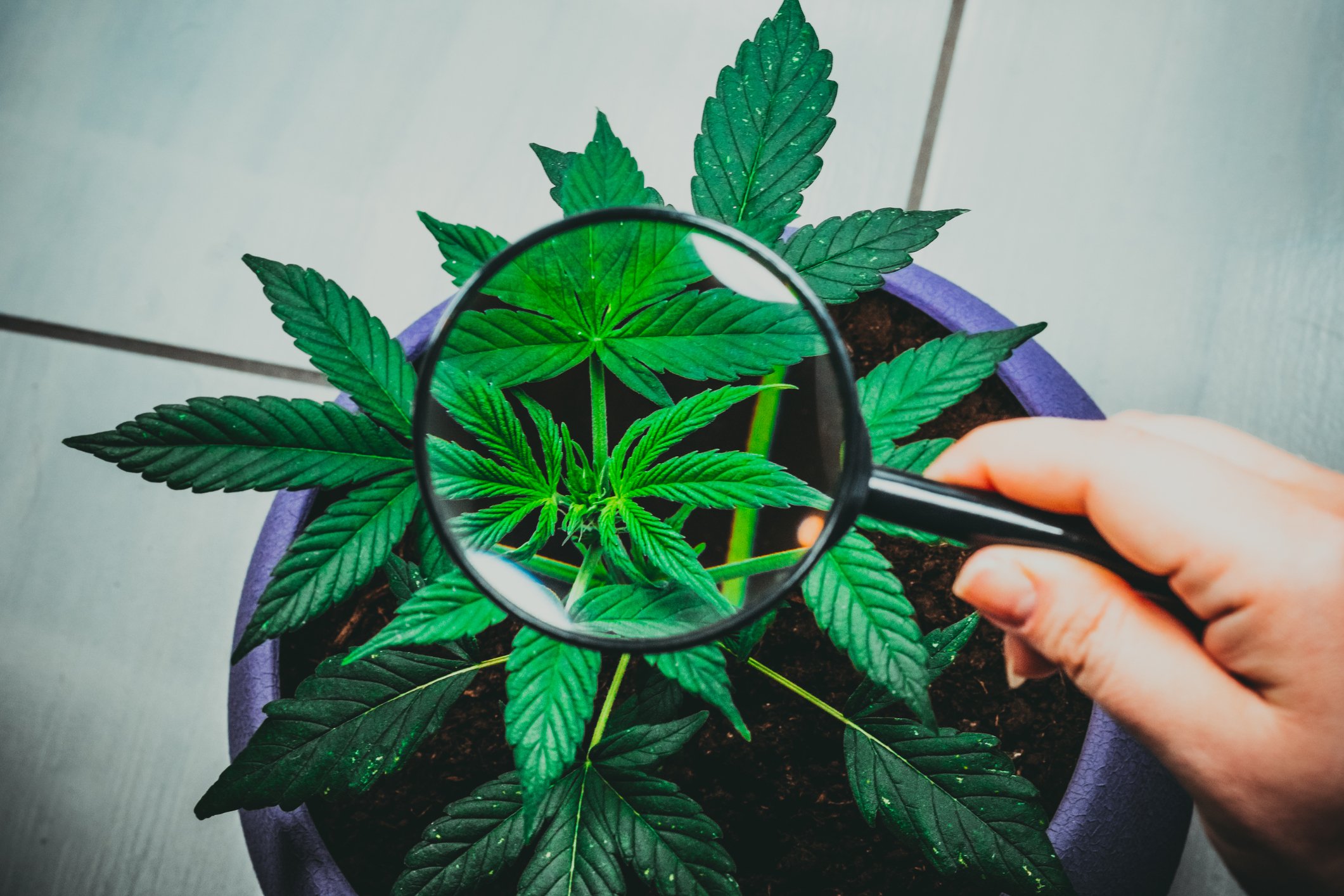The marijuana industry has broken down multiple barriers in 2018. In no particular order, we've witnessed:
- Canada become the first industrialized country to legalize recreational marijuana, opening the door to billions of dollars in added annual sales.
- Two new states (Missouri and Utah) approve medical cannabis, with two more states (Vermont and Michigan) giving the green light to adult-use pot.
- The U.S. Food and Drug Administration approve the very first cannabis-derived drug in June.
- Around a half-dozen over-the-counter-listed pot stocks uplist to major U.S. exchanges.
And this is just a partial list of the cannabis industry's accomplishments in 2018. In sum, it's been a year of gained legitimacy for an industry that had been viewed as highly taboo just a few years prior.

Image source: Getty Images.
These pot stocks could take it on the chin in 2019
But, as investors, we're also acutely aware that not all marijuana stocks can be winners. Ultimately, this is a budding industry with strong growth potential that's bound to run into a few speed bumps along the way. And when those hiccups arise, some marijuana stocks could really take it on the chin. Here are two pot stocks that could come crashing down in a big way in 2019.
Tilray
Canada-based Tilray (TLRY +0.00%) made history in July by becoming the first marijuana stock to go public on a major U.S. exchange. With well-recognized medical cannabis brands in its portfolio and visions of expansion, investors welcomed Tilray with open arms.
After listing its shares at $17 and raising $153 million in gross proceeds, Tilray's stock would go on to hit $300 per share in mid-September, ever-so-briefly sporting a market cap of $28 billion. But even after giving back approximately three-quarters of its value in the subsequent three months, I suspect there's a possibility Tilray's share price could be halved.
The interesting thing about Tilray is that it's not a bad company. As noted, it's done a good job of developing its medical cannabis brands and focusing on these higher-margin medical pot patients. It also recently announced a worldwide distribution deal with Novartis' generic drug subsidiary Sandoz to push its noncombustible, nonsmokable products to foreign markets. But its valuation of more than $7 billion makes me cringe.

Image source: Getty Images.
When Tilray filed its S-1 prospectus with the Securities and Exchange Commission in June, it estimated that 912,000 square feet would be completed this calendar year, of which about 854,000 square feet would be devoted to growing space. This suggests an annual peak production output of maybe 80,000 kilograms. Comparatively, Aurora Cannabis and Aphria combine for the same market cap as Tilray, but are probably going to yield 700,000 kilograms and 255,000 kilograms, respectively, when at full production capacity. Tilray does have nearly 3 million square feet of space that it could develop, but why it boasts a $7 billion valuation is beyond comprehension.
Furthermore, Tilray is also facing the expiration of its lock-up period in mid-January. Following a more than quadrupling from its list price, there's a very good possibility that some insiders are going to sell. Just as we witnessed during the high-growth dot-com days, lock-up periods expiring tend to be a reason for investors to take profits.
As the icing on the cake, Tilray is going to be spending a lot of money growing its capacity, building up and marketing its brands, researching new medical products, and expanding into foreign markets. It doesn't look as if there's any chance of an operating profit in 2019.
Insys Therapeutics
Another marijuana stock you'd be wise to avoid in 2019 is drug developer Insys Therapeutics (INSY +0.00%). Now I know what you're probably thinking: "Insys is already down 90% from its all-time highs. How much further could it sink?" Well, a 50% haircut isn't out of the question.

Image source: Getty Images.
Insys is an absolute mess, and shareholders have the company's former management team to thank for that. Insys wound up settling with U.S. regulators following allegations of wrongdoing that it encouraged physicians to prescribe Subsys, a fentanyl-based medicine, for off-label use. It's been estimated that up to 80% of the company's peak of $330 million in annual Subsys sales came from off-label use, rather than its FDA-approved indication of treating breakthrough cancer pain. Since these allegations and multiple arrests of former executives, sales of Subsys have cratered. In the most recent quarter, net sales of Insys' lead drug totaled just $17.7 million, or about $71 million on an extrapolated annual basis. This figure could shrink further, as trust in Insys has been lost.
There's also the recent development that Insys may be looking to sell its opioid-based portfolio and pipeline, which would include Subsys. It's unclear what the company would be able to get for its damaged lead drug and a line of products that are facing increased scrutiny from U.S. lawmakers. What is clear is that without Subsys, Insys' quarterly losses would grow even larger.
Then there's Syndros, the company's oral dronabinol solution for the treatment of chemotherapy-induced nausea and vomiting, and for anorexia associated with AIDS. Syndros is why the company is associated with pot stocks, and when it was launched in the summer of 2017, it was expected to generate as much as $200 million in peak annual sales. Yet in the most recent quarter, it logged $976,000 in sales, which represents virtually no organic growth from the year-ago period. Year-to-date sales have totaled just $2.61 million. In the investment world, we call that a bona fide flop!
Even if Insys drastically shrinks its marketing team, it's probably going to incur $20 million to $25 million in quarterly operating expenses. With shrinking revenue and only $113 million in cash, cash equivalents, and investments remaining, that's a problem. This is a pot stock investors should be avoiding at all costs in 2019.






